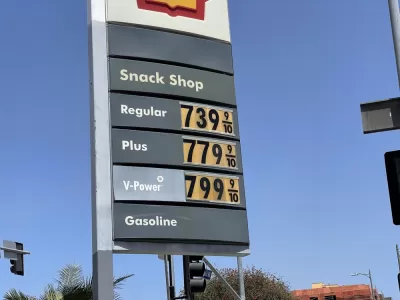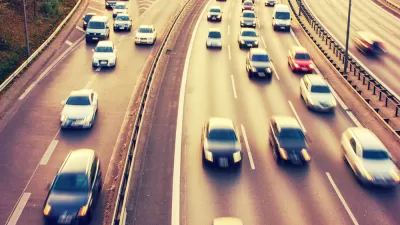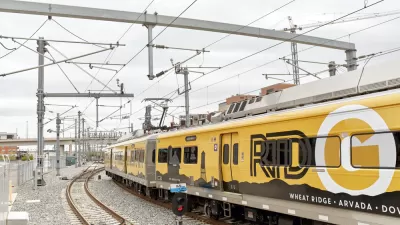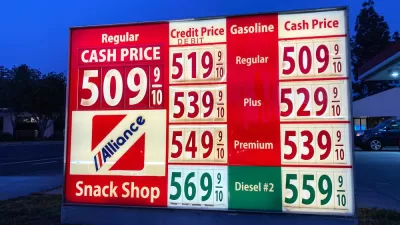Surveys and transit ridership both show some signs, with significant caveats, of the limits of the appetite for gasoline in Colorado.

While high gas prices have historically shown just how stubborn drivers can be, there is usually some reduction of driving when gas prices spike. With many people emerging back into their normal day-to-day routines and making up for lost time with road trips and vacations after two long years of pandemic restrictions, the current high gas prices are less likely to produce outcomes in line with precedent.
With the uncertainty of mobility in 2022 in mind, Matt Bloom recently dug into the mood and trends of drivers in Colorado, where the average gas price recently hit $4.62 per gallon—the highest ever recorded in the state and a 40 percent increase over last year.
“As a result, roughly 67 percent of drivers have started to drive less, according to a AAA survey of Colorado residents,” reports Bloom. “Pain at the pump has forced some people to readjust their vacation plans, rethink their work commutes and cut back on the amount they’re saving each month.”
For another key metric, albeit one that does not necessarily reflect a direct connection to gas prices, transit ridership is on the rise in the Denver area, although still well below pre-pandemic levels. “Public transit ridership in the Denver area has seen a slight increase in ridership over recent months, but it remains below pre-pandemic levels. Metro area residents took 4.8 million trips via bus or train in March — a 42 percent jump over the same time in 2021, according to RTD’s latest ridership figures,” reports Bloom.
Still, “the Colorado Department of Transportation and Denver International Airport both reported near pre-pandemic passenger numbers on roads and airplanes over the recent Memorial Day holiday,” according to Bloom, so drivers aren’t exactly abandoning their vehicles.
FULL STORY: Record gas prices force Coloradans to reevaluate commutes and summer travel plans

Alabama: Trump Terminates Settlements for Black Communities Harmed By Raw Sewage
Trump deemed the landmark civil rights agreement “illegal DEI and environmental justice policy.”

Study: Maui’s Plan to Convert Vacation Rentals to Long-Term Housing Could Cause Nearly $1 Billion Economic Loss
The plan would reduce visitor accommodation by 25% resulting in 1,900 jobs lost.

Planetizen Federal Action Tracker
A weekly monitor of how Trump’s orders and actions are impacting planners and planning in America.

Waymo Gets Permission to Map SF’s Market Street
If allowed to operate on the traffic-restricted street, Waymo’s autonomous taxis would have a leg up over ride-hailing competitors — and counter the city’s efforts to grow bike and pedestrian on the thoroughfare.

Parklet Symposium Highlights the Success of Shared Spaces
Parklets got a boost during the Covid-19 pandemic, when the concept was translated to outdoor dining programs that offered restaurants a lifeline during the shutdown.

Federal Homelessness Agency Places Entire Staff on Leave
The U.S. Interagency Council on Homelessness is the only federal agency dedicated to preventing and ending homelessness.
Urban Design for Planners 1: Software Tools
This six-course series explores essential urban design concepts using open source software and equips planners with the tools they need to participate fully in the urban design process.
Planning for Universal Design
Learn the tools for implementing Universal Design in planning regulations.
Caltrans
Smith Gee Studio
Institute for Housing and Urban Development Studies (IHS)
City of Grandview
Harvard GSD Executive Education
Toledo-Lucas County Plan Commissions
Salt Lake City
NYU Wagner Graduate School of Public Service





























